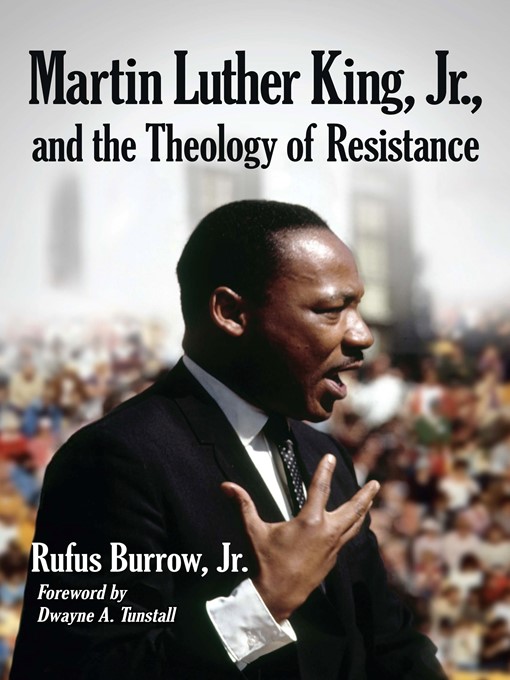-
Creators
-
Publisher
-
Release date
November 19, 2014 -
Formats
-
Kindle Book
-
OverDrive Read
- ISBN: 9781476617329
-
EPUB ebook
- ISBN: 9781476617329
- File size: 803 KB
-
-
Languages
- English
-
Reviews
-
Publisher's Weekly
April 20, 2009
People today know Martin Luther King Jr. for his leadership during the American civil rights struggle. Some may know of his commitment to nonviolence and be able to connect King's name to the Montgomery bus boycott, his "Letter from Birmingham Jail," the 1963 March on Washington and "I have a dream" speech. What many may not know is that King's authority was not simply that of an intelligent man gifted with powerful rhetoric championing an idea whose time had come. Burrow, a professor of Christian thought and social ethics at Christian Theological Seminary in Indianapolis, Ind., describes in an accessible manner the persons, community and academic influences that shaped King's vision and grounded his methods of change. Burrow explains how King, "the quintessential Christian social Personalist"-one who believed that God is personal and that all persons have intrinsic dignity and value-harnessed lessons learned from his family with sophisticated theological principles from the likes of Hegel and Niebuhr for the gritty practical purposes of fighting for dignity and equality. With clever and instructive illustrations, the book is clear and engaging, enriching readers' understanding of King while also demonstrating how his ideas and methods transcend his person, time and place for application today.
-
Formats
- Kindle Book
- OverDrive Read
- EPUB ebook
Languages
- English
Loading
Why is availability limited?
×Availability can change throughout the month based on the library's budget. You can still place a hold on the title, and your hold will be automatically filled as soon as the title is available again.
The Kindle Book format for this title is not supported on:
×Read-along ebook
×The OverDrive Read format of this ebook has professional narration that plays while you read in your browser. Learn more here.

